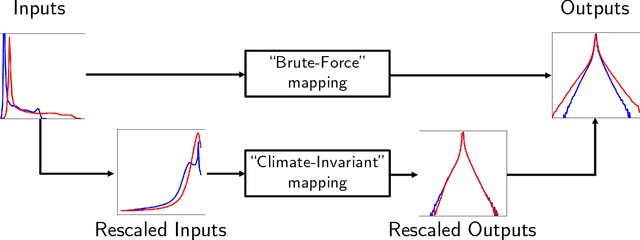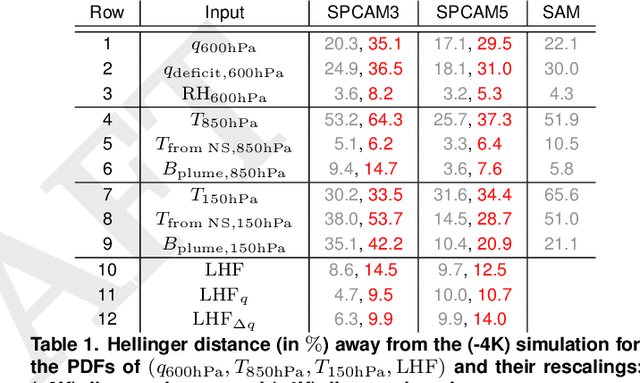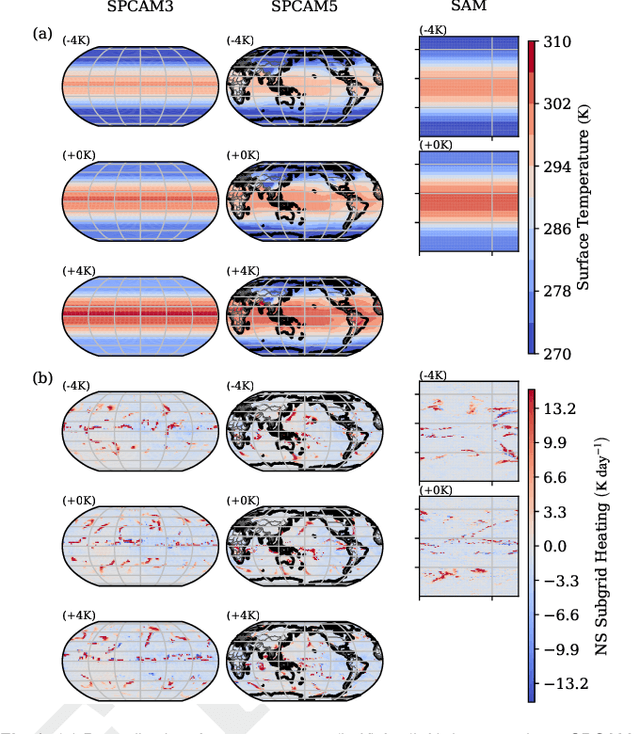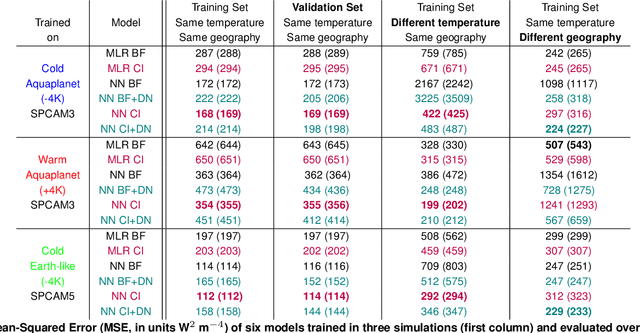Ankitesh Gupta
Climate-Invariant Machine Learning
Dec 14, 2021



Abstract:Data-driven algorithms, in particular neural networks, can emulate the effects of unresolved processes in coarse-resolution climate models when trained on high-resolution simulation data; however, they often make large generalization errors when evaluated in conditions they were not trained on. Here, we propose to physically rescale the inputs and outputs of machine learning algorithms to help them generalize to unseen climates. Applied to offline parameterizations of subgrid-scale thermodynamics in three distinct climate models, we show that rescaled or "climate-invariant" neural networks make accurate predictions in test climates that are 4K and 8K warmer than their training climates. Additionally, "climate-invariant" neural nets facilitate generalization between Aquaplanet and Earth-like simulations. Through visualization and attribution methods, we show that compared to standard machine learning models, "climate-invariant" algorithms learn more local and robust relations between storm-scale convection, radiation, and their synoptic thermodynamic environment. Overall, these results suggest that explicitly incorporating physical knowledge into data-driven models of Earth system processes can improve their consistency and ability to generalize across climate regimes.
Lip Reading Using Convolutional Auto Encoders as Feature Extractor
May 31, 2018



Abstract:Visual recognition of speech using the lip movement is called Lip-reading. Recent developments in this nascent field uses different neural networks as feature extractors which serve as input to a model which can map the temporal relationship and classify. Though end to end sentence level Lip-reading is the current trend, we proposed a new model which employs word level classification and breaks the set benchmarks for standard datasets. In our model we use convolutional autoencoders as feature extractors which are then fed to a Long short-term memory model. We tested our proposed model on BBC's LRW dataset, MIRACL-VC1 and GRID dataset. Achieving a classification accuracy of 98% on MIRACL-VC1 as compared to 93.4% of the set benchmark (Rekik et al., 2014). On BBC's LRW the proposed model performed better than the baseline model of convolutional neural networks and Long short-term memory model (Garg et al., 2016). Showing the features learned by the models we clearly indicate how the proposed model works better than the baseline model. The same model can also be extended for end to end sentence level classification.
 Add to Chrome
Add to Chrome Add to Firefox
Add to Firefox Add to Edge
Add to Edge